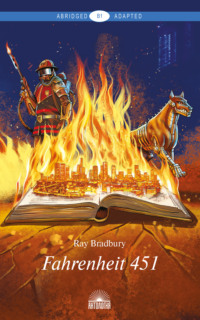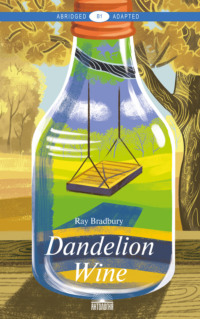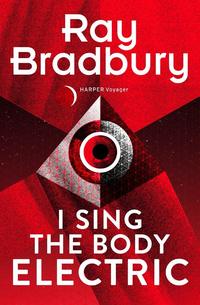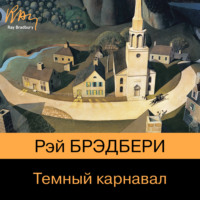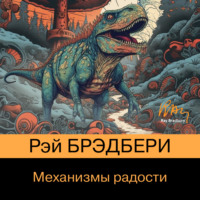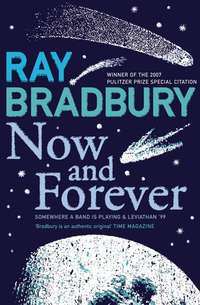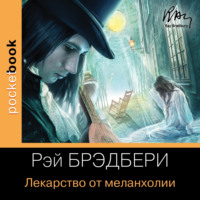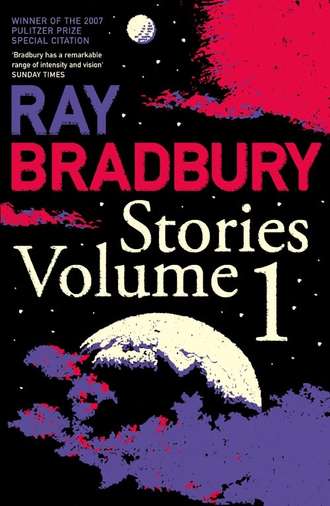
Полная версия
Ray Bradbury Stories Volume 1
Including dinosaurs.
All of my activities, all of my growing, all of my new jobs and new loves, caused and created by that original primitive love of the beasts I saw when I was five and dearly cherished when I was twenty and twentynine and thirty.
Look around among these stories and you will probably find only one or two that actually happened to me. I have resisted, most of my life, being given assignments to go somewhere and ‘sponge up’ the local color, the natives, the look and feel of the land. I learned long ago that I am not seeing directly, that my subconscious is doing most of the ‘sponging’ and it will be years before any usable impressions surface.
As a young man I lived in a tenement in the Chicano section of Los Angeles. Most of my Latino stories were written years after I had moved from the tenement, with one terrifying, on-the-spot, exception. In late 1945, with World War II freshly over, a friend of mine asked me to accompany him to Mexico City in an old beat-up Ford V-8. I reminded him of the vow of poverty that circumstances had forced on me. He rebutted by calling me a coward, wondering why I didn’t rev up my courage and send out three or four stories which I had hidden away. Reason for the hiding: the stories had been rejected once or twice by various magazines. Pummeled by my friend, I dusted the stories off and mailed them out, under the pseudonym William Elliott. Why the pseudonym? Because I feared that some Manhattan editors might have seen the name Bradbury on the covers of Weird Tales and would be prejudiced against this ‘pulp’ writer.
I mailed off three short stories to three different magazines, in the second week of August 1945. On August 20, I sold one story to Charm, on August 21, I sold a story to Mademoiselle, and on August 22, my twenty-fifth birthday, I sold a story to Collier’s. The total monies amounted to $1,000, which would be like having $10,000 arrive in the mail today.
I was rich. Or so close to it I was dumbfounded. It was a turning point in my life, of course, and I hastened to write to the editors of those three magazines confessing my true name.
All three stories were listed in The Best American Short Stories of 1946 by Martha Foley, and one of them was published in Herschel Brickell’s O. Henry Memorial Award Prize Stories the following year.
That money took me to Mexico, to Guanajuato, and the mummies in the catacombs. The experience so wounded and terrified me, I could hardly wait to flee Mexico. I had nightmares about dying and having to remain in the halls of the dead with those propped and wired bodies. In order to purge my terror, instantly, I wrote ‘The Next in Line.’ One of the few times that an experience yielded results almost on the spot.
Enough of Mexico. What about Ireland?
There is every kind of Irish story here because after living in Dublin for six months I saw that most of the Irish I met had a variety of ways of making do with that dreadful beast Reality. You can run into it head-on, which is a dire business, or you can skirt around it, give it a poke, dance for it, make up a song, write you a tale, prolong the gab, fill up the flask. Each partakes of Irish cliché, but each, in the foul weather and the foundered politics, is true.
I got to know every beggar in the streets of Dublin, the ones near O’Connell’s Bridge with maniac pianolas grinding more coffee than tunes and the ones who loaned out a single baby among a whole tribe of rain soaked mendicants, so you saw the babe one hour at the top of Grafton Street and the next by the Royal Hibernian Hotel, and at midnight down by the river, but I never thought I would write of them. Then the need to howl and give an angry weep made me rear up one night and write ‘McGillahee’s Brat’ out of terrible suspicions and the begging of a rainwalking ghost that had to be laid. I visited some of the old burnt-out estates of the great Irish landowners, and heard tales of one ‘burning’ that had not quite come off, and so wrote ‘The Terrible Conflagration up at the Place.’
‘The Anthem Sprinters,’ another Irish encounter, wrote itself down years later when, one rainy night, I recalled the countless times my wife and I had sprinted out of Dublin cinemas, dashing for the exit, knocking children and old folks to left and right, in order to make it to the exit before the National Anthem was played.
But how did I begin? Starting in Mr Electrico’s year, I wrote a thousand words a day. For ten years I wrote at least one short story a week, somehow guessing that a day would finally come when I truly got out of the way and let it happen.
The day came in 1942 when I wrote ‘The Lake.’ Ten years of doing everything wrong suddenly became the right idea, the right scene, the right characters, the right day, the right creative time. I wrote the story sitting outside, with my typewriter, on the lawn. At the end of an hour the story was finished, the hair on the back of my neck was standing up, and I was in tears. I knew I had written the first really good story of my life.
All during my early twenties I had the following schedule. On Monday morning I wrote the first draft of a new story. On Tuesday I did a second draft. On Wednesday a third. On Thursday a fourth. On Friday a fifth. And on Saturday at noon I mailed out the sixth and final draft to New York. Sunday? I thought about all the wild ideas scrambling for my attention, waiting under the attic lid, confident at last that, because of ‘The Lake,’ I would soon let them out.
If this all sounds mechanical, it wasn’t. My ideas drove me to it, you see. The more I did, the more I wanted to do. You grow ravenous. You run fevers. You know exhilarations. You can’t sleep at night, because your beast-creature ideas want out and turn you in your bed. It is a grand way to live.
There was another reason to write so much: I was being paid twenty to forty dollars a story, by the pulp magazines. High on the hog was hardly my way of life. I had to sell at least one story, or better two, each month in order to survive my hot-dog, hamburger, trolley-car-fare life.
In 1944 I sold some forty stories, but my total income for the year was only $800.
It suddenly strikes me that there is much in this collection I haven’t commented on yet. ‘The Black Ferris’ is of interest here because early one autumn twenty-three years ago it changed itself from a short short story into a screenplay and then into a novel, Something Wicked This Way Comes.
‘The Day It Rained Forever’ was another word-association I handed myself one afternoon, thinking about hot suns, deserts, and harps that could change the weather.
‘The Leave-Taking’ is the true story of my great-grandmother who nailed shingles on rooftops well into her seventies, then took herself up to bed when I was three and said farewell to everyone and went to sleep.
‘Calling Mexico’ sprang into being because I visited a friend of mine one afternoon in the summer of 1946 and, as I entered the room, he handed me the telephone and said, ‘Listen.’ I listened and heard the sounds of Mexico City coming from two thousand miles away. I went home and wrote about my telephone experience to a friend in Paris. Halfway through my letter, the letter turned into the story, which went off in the mail that day.
‘Skeleton’ happened because I went to my doctor when I was twentytwo, complaining that my neck, my throat, felt strange. I touched all around the tendons and muscles of my neck. The doctor did likewise and said, ‘You know what you’re suffering from?’
‘What?’
‘A bad case,’ he said, ‘of discovery of the larynx. We all discover, at one time or another, various tendons, various bones, in our bodies we never noticed before. That’s you. Take an aspirin and go home.’
I went home, feeling my elbows, my ankles, my ribs, my throat, and my medulla oblongata.
‘Skeleton,’ a contest between a man and his hidden bones, wrote itself that night.
‘The Picasso Summer’ was the result of my walking on the shoreline with friends and my wife one late afternoon. I picked up a Popsicle stick, drew pictures in the sand and said: ‘Wouldn’t it be awful, if you’d wanted to own a Picasso all your life, and suddenly bumped into him here, drawing mythological beasts in the sand … your very own Picasso “etching” right in front of you …’
I finished the story, about Picasso on the beach, at two in the morning.
Hemingway. ‘The Parrot Who Met Papa.’ One night in 1952 I drove across Los Angeles with friends to invade the printing plant where Life was publishing their issue with Hemingway’s Old Man and the Sea in it. We grabbed copies, hot off the press, sat in the nearest bar, and talked about Papa, Finca Vigía, Cuba, and, somehow, a parrot who had lived in that bar and talked to Hemingway every night. I went home, made a notation about the parrot, and put it away for sixteen years. Prowling my file folders in 1968 I came upon just the note for a title: ‘The Parrot Who Met Papa.’
My God, I thought, Papa’s been dead eight years. If that parrot is still around, remembers Hemingway, can speak with his voice, he’s worth millions. And what if someone kidnapped the parrot, held it for ransom?
‘The Haunting of the New’ happened because John Godley, Lord Kilbracken, wrote me from Ireland describing his visit to a house that had burned and been replaced, stone by stone, brick by brick, in imitation of the original. Within half a day of reading Kilbracken’s postcard, I had firstdrafted the tale.
Enough now. There you have it. Here are one hundred stories from almost forty years of my life, containing half the damning truths I suspected at midnight, and half of the saving truths I re-found next noon. If anything is taught here, it is simply the charting of the life of someone who started out to somewhere – and went. I have not so much thought my way through life as done things and found what it was and who I was after the doing. Each tale was a way of finding selves. Each self found each day slightly different from the one found twenty-four hours earlier.
It all started that autumn day in 1932 when Mr Electrico gave me the two gifts. I don’t know if I believe in previous lives, I’m not sure I can live forever. But that young boy believed in both and I have let him have his head. He has written my stories and books for me. He runs the Ouija Board and says Aye or Nay to submerged truths or half-truths. He is the skin through which, by osmosis, all the stuffs pass and put themselves on paper. I have trusted his passions, his fears, and his joys. He has, as a result, rarely failed me. When it is a long damp November in my soul, and I think too much and perceive too little, I know it is high time to get back to that boy with the tennis shoes, the high fevers, the multitudinous joys, and the terrible nightmares. I’m not sure where he leaves off and I start. But I’m proud of the tandem team. What else can I do but wish him well, and at the same time acknowledge and wish two other people well? In the same month that I married my wife Marguerite, I became affiliated with my literary representative and closest friend, Don Congdon. Maggie typed and criticized my stories. Don criticized and sold the results. With the two of them as teammates these past thirty-three years, how could I have failed? We are the Connemara Lightfoots, the Queen’s Own Evaders. And we’re still sprinting for that exit.
Here are the stories. Turn the page.
The Night
You are a child in a small town. You are, to be exact, eight years old, and it is growing late at night. Late for you, accustomed to bedding in at nine or nine-thirty: once in a while perhaps begging Mom or Dad to let you stay up later to hear Sam and Henry on that strange radio that is popular in this year of 1927. But most of the time you are in bed and snug at this time of night.
It is a warm summer evening. You live in a small house on a small street in the outer part of town where there are few street lights. There is only one store open, about a block away: Mrs Singer’s. In the hot evening Mother has been ironing the Monday wash and you have been intermittently begging for ice cream and staring into the dark.
You and your mother are all alone at home in the warm darkness of summer. Finally, just before it is time for Mrs Singer to close her store, Mother relents and tells you:
‘Run get a pint of ice cream and be sure she packs it tight.’
You ask if you can get a scoop of chocolate ice cream on top, because you don’t like vanilla, and Mother agrees. You clutch the money and run barefooted over the warm evening cement sidewalk, under the apple trees and oak trees, toward the store. The town is so quiet and far off, you can only hear the crickets sounding in the spaces beyond the hot indigo trees that hold back the stars.
Your bare feet slap the pavement, you cross the street and find Mrs Singer moving ponderously about her store, singing Yiddish melodies.
‘Pint ice cream?’ she says. ‘Chocolate on top? Yes!’
You watch her fumble the metal top off the ice-cream freezer and manipulate the scoop, packing the cardboard pint chock full with ‘chocolate on top, yes!’ You give the money, receive the chill, icy pack, and rubbing it across your brow and cheek, laughing, you thump barefootedly homeward. Behind you, the lights of the lonely little store blink out and there is only a street light shimmering on the corner, and the whole city seems to be going to sleep …
Opening the screen door you find Mom still ironing. She looks hot and irritated, but she smiles just the same.
‘When will Dad be home from lodge-meeting?’ you ask.
‘About eleven-thirty or twelve,’ Mother replies. She takes the ice cream to the kitchen, divides it. Giving you your special portion of chocolate, she dishes out some for herself and the rest is put away. ‘For Skipper and your father when they come.’
Skipper is your brother. He is your older brother. He’s twelve and healthy, red-faced, hawk-nosed, tawny-haired, broad-shouldered for his years, and always running. He is allowed to stay up later than you. Not much later, but enough to make him feel it is worthwhile having been born first. He is over on the other side of town this evening to a game of kick-the-can and will be home soon. He and the kids have been yelling, kicking, running for hours, having fun. Soon he will come clomping in, smelling of sweat and green grass on his knees where he fell, and smelling very much in all ways like Skipper; which is natural.
You sit enjoying the ice cream. You are at the core of the deep quiet summer night. Your mother and yourself and the night all around this small house on this small street. You lick each spoon of ice cream thoroughly before digging for another, and Mom puts her ironing board away and the hot iron in its case, and she sits in the armchair by the phonograph, eating her dessert and saying, ‘My lands, it was a hot day today. It’s still hot. Earth soaks up all the heat and lets it out at night. It’ll be soggy sleeping.’
You both sit there listening to the summer silence. The dark is pressed down by every window and door, there is no sound because the radio needs a new battery, and you have played all the Knickerbocker Quartet records and Al Jolson and Two Black Crows records to exhaustion: so you just sit on the hardwood floor by the door and look out into the dark dark dark, pressing your nose against the screen until the flesh of its tip is molded into small dark squares.
‘I wonder where your brother is?’ Mother says after a while. Her spoon scrapes on the dish. ‘He should be home by now. It’s almost nine-thirty.’
‘He’ll be here,’ you say, knowing very well that he will be.
You follow Mom out to wash the dishes. Each sound, each rattle of spoon or dish is amplified in the baked evening. Silently, you go to the living room, remove the couch cushions and, together, yank it open and extend it down into the double bed that it secretly is. Mother makes the bed, punching pillows neatly to flump them up for your head. Then, as you are unbuttoning your shirt, she says:
‘Wait awhile, Doug.’
‘Why?’
‘Because. I say so.’
‘You look funny, Mom.’
Mom sits down a moment, then stands up, goes to the door, and calls. You listen to her calling and calling Skipper. Skipper, Skiiiiiiiiiperrrrrrrr over and over. Her calling goes out into the summer warm dark and never comes back. The echoes pay no attention.
Skipper, Skipper, Skipper.
Skipper!
And as you sit on the floor a coldness that is not ice cream and not winter, and not part of summer’s heat, goes through you. You notice Mom’s eyes sliding, blinking; the way she stands undecided and is nervous. All of these things.
She opens the screen door. Stepping out into the night she walks down the steps and down the front sidewalk under the lilac bush. You listen to her moving feet.
She calls again. Silence.
She calls twice more. You sit in the room. Any moment now Skipper will reply, from down the long long narrow street:
‘All right, Mom! All right, Mother! Hey!’
But he doesn’t answer. And for two minutes you sit looking at the made-up bed, the silent radio, the silent phonograph, at the chandelier with its crystal bobbins gleaming quietly, at the rug with the scarlet and purple curlicues on it. You stub your toe on the bed purposely to see if it hurts. It does.
Whining, the screen door opens, and Mother says:
‘Come on, Shorts. We’ll take a walk.’
‘Where to?’
‘Just down the block. Come on. Better put your shoes on, though. You’ll catch cold.’
‘No, I won’t. I’ll be all right.’
You take her hand. Together you walk down St James Street. You smell roses in blossom, fallen apples lying crushed and odorous in the deep grass. Underfoot, the concrete is still warm, and the crickets are sounding louder against the darkening dark. You reach a corner, turn, and walk toward the ravine.
Off somewhere, a car goes by, flashing its lights in the distance. There is such a complete lack of life, light, and activity. Here and there, back off from where you are walking toward the ravine, you see faint squares of light where people are still up. But most of the houses, darkened, are sleeping already, and there are a few lightless places where the occupants of a dwelling sit talking low dark talk on their front porches. You hear a porch swing squeaking as you walk near.
‘I wish your father was home,’ says Mother. Her large hand tightens around your small one. ‘Just wait’ll I get that boy. I’ll spank him within an inch of his life.’
A razor strop hangs in the kitchen for this. You think of it, remember when Dad has doubled and flourished it with muscled control over your frantic limbs. You doubt Mother will carry out her promise.
Now you have walked another block and are standing by the holy black silhouette of the German Baptist Church at the corner of Chapel Street and Glen Rock. In back of the church a hundred yards away, the ravine begins. You can smell it. It has a dark sewer, rotten foliage, thick green odor. It is a wide ravine that cuts and twists across the town, a jungle by day, a place to let alone at night, Mother has often declared.
You should feel encouraged by the nearness of the German Baptist Church, but you are not – because the building is not illumined, is cold and useless as a pile of ruins on the ravine edge.
You are only eight years old, you know little of death, fear, or dread. Death is the waxen effigy in the coffin when you were six and Grandfather passed away – looking like a great fallen vulture in his casket, silent, withdrawn, no more to tell you how to be a good boy, no more to comment succinctly on politics. Death is your little sister one morning when you awaken at the age of seven, look into her crib and see her staring up at you with a blind blue, fixed and frozen stare until the men come with a small wicker basket to take her away. Death is when you stand by her high chair four weeks later and suddenly realize she’ll never be in it again, laughing and crying, and make you jealous of her because she was born. That is death.
But this is more than death. This summer night wading deep in time and stars and warm eternity. It is an essence of all the things you will ever feel or see or hear in your life again, being brought steadily home to you all at once.
Leaving the sidewalk, you walk along a trodden, pebbled, weed-fringed path to the ravine’s edge. Crickets, in loud full drumming chorus now, are shouting to quiver the dead. You follow obediently behind brave, fine, tall Mother who is defender of all the universe. You feel braveness because she goes before, and you hang back a trifle for a moment, and then hurry on, too. Together, then, you approach, reach, and pause at the very edge of civilization.
The ravine.
Here and now, down there in that pit of jungled blackness is suddenly all the evil you will ever know. Evil you will never understand. All of the nameless things are there. Later, when you have grown you’ll be given names to label them with. Meaningless syllables to describe the waiting nothingness. Down there in the huddled shadow, among thick trees and trailed vines, lives the odor of decay. Here, at this spot, civilization ceases, reason ends, and a universal evil takes over.
You realize you are alone. You and your mother. Her hand trembles.
Her hand trembles.
Your belief in your private world is shattered. You feel Mother tremble. Why? Is she, too, doubtful? But she is bigger, stronger, more intelligent than yourself, isn’t she? Does she, too, feel that intangible menace, that groping out of darkness, that crouching malignancy down below? Is there, then, no strength in growing up? no solace in being an adult? no sanctuary in life? no flesh citadel strong enough to withstand the scrabbling assault of midnights? Doubts flush you. Ice cream lives again in your throat, stomach, spine and limbs; you are instantly cold as a wind out of December-gone.
You realize that all men are like this. That each person is to himself one alone. One oneness, a unit in a society, but always afraid. Like here, standing. If you should scream now, if you should holler for help, would it matter?
You are so close to the ravine now that in the instant of your scream, in the interval between someone hearing it and running to find you, much could happen.
Blackness could come swiftly, swallowing; and in one titanically freezing moment all would be concluded. Long before dawn, long before police with flashlights might probe the disturbed pathway, long before men with trembling brains could rustle down the pebbles to your help. Even if they were within five hundred yards of you now, and help certainly is, in three seconds a dark tide could rise to take all eight years of life away from you and—
The essential impact of life’s loneliness crushes your beginning-to-tremble body. Mother is alone, too. She cannot look to the sanctity of marriage, the protection of her family’s love, she cannot look to the United States Constitution or the City Police, she cannot look anywhere, in this very instant, save into her heart, and there she’ll find nothing but uncontrollable repugnance and a will to fear. In this instant it is an individual problem seeking an individual solution. You must accept being alone and work on from there.
You swallow hard, cling to her. Oh Lord, don’t let her die, please, you think. Don’t do anything to us. Father will be coming home from lodge-meeting in an hour and if the house is empty … ?
Mother advances down the path into the primeval jungle. Your voice trembles. ‘Mom. Skip’s all right. Skip’s all right. He’s all right. Skip’s all right.’
Mother’s voice is strained, high. ‘He always comes through here. I tell him not to, but those darned kids, they come through here anyway. Some night he’ll come through and never come out again—’
Never come out again. That could mean anything. Tramps. Criminals. Darkness. Accident. Most of all – death.



